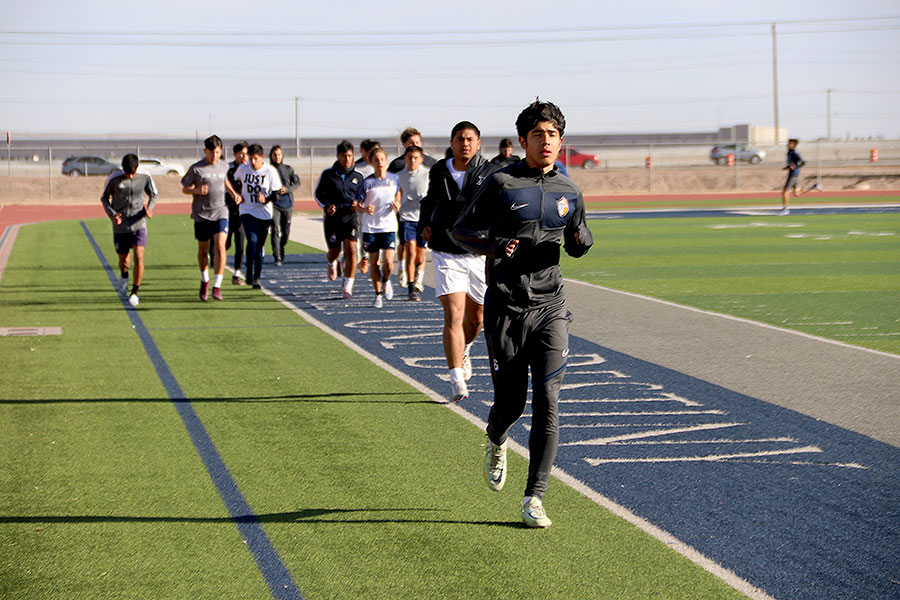Global warming; its local impact
March 8, 2020
The heat is rising, icebergs are melting, global warming is real. There are already floods on the coasts and tornadoes in Europe causing many to worry. Melting icebergs in the Antarctic, wild bushfires in Australia may sound far away but global warming is impacting El Paso in a way many may not see.
In recent decades, the runoff from the Rio Grande river has decreased by 25 percent due to global warming, leading the city to rely more on treated sewage water rather than the river.
“It doesn’t really bother me because is there really any new water? There are some chemicals that are very hard to clean out of the water though, so they need a strong treatment process,” AP Chemistry teacher Sherri Bryant said.
El Paso is also among the cities in Texas with the worst air pollution in the state, mostly due to smog coming from across the border. Mexico does not regulate car emissions like Texas and often burns trash leading to pillars of smoke.
“Gases move from one place to another so pollution can’t be contained to one area. This is why the Grand Canyon is polluted even though it’s in the middle of nowhere, gases from surrounding big cities move towards it bringing in pollution.” Bryant said.
The ocean is also absorbing 40 percent of the carbon dioxide in the atmosphere causing ocean temperatures to rise rapidly.
“Oceans temperatures are sensitive to marine life and coral because these organisms need a certain temperature to thrive in and when temperatures change, the environment can’t adapt,” senior Rene Serrano said.
There is even an island of trash called the Eastern Garbage Patch that is roughly the size of Texas. Plankton, which are the basis of ocean life, consumes the trash which causes the whole food chain and chemical balance of oxygen levels to be off.
“What we shouldn’t do is use plastic as much, if we want to return things back to the earth we need to use natural materials such as paper, but we do need to make sure that what we get from the earth needs to be put back,” Serrano said.
According to the National Oceanic and Atmospheric Administration and NASA, 2019 was the second hottest year on record. The temperature was one degree celsius (two degrees Fahrenheit) warmer than the mid 20th century.
“When days are supposed to be super hot, they’re not that hot, they’re even cooler than expected and when the days are supposed to be super cold, they’re actually warm,” junior Mikhail Velez said.
Though the Earth has gone through periods of natural global warming and cooling throughout its lifetime, in the last 40 years, temperatures have risen and have stayed there, meaning the world needs to make a change and soon.
“Older generations show too little concern and our generation right now does worry because we are aware of the effects but we can’t do much more than raise awareness,” Serrano said.
Simple things such as switching to energy efficient light bulbs which save money in the long run, carpooling, consuming less meat and unplugging devices that don’t need to be plugged in will contribute to a healthier planet. What can help the most is to raise awareness to make a change. Saving the life of this planet is not a job one person can do.



































